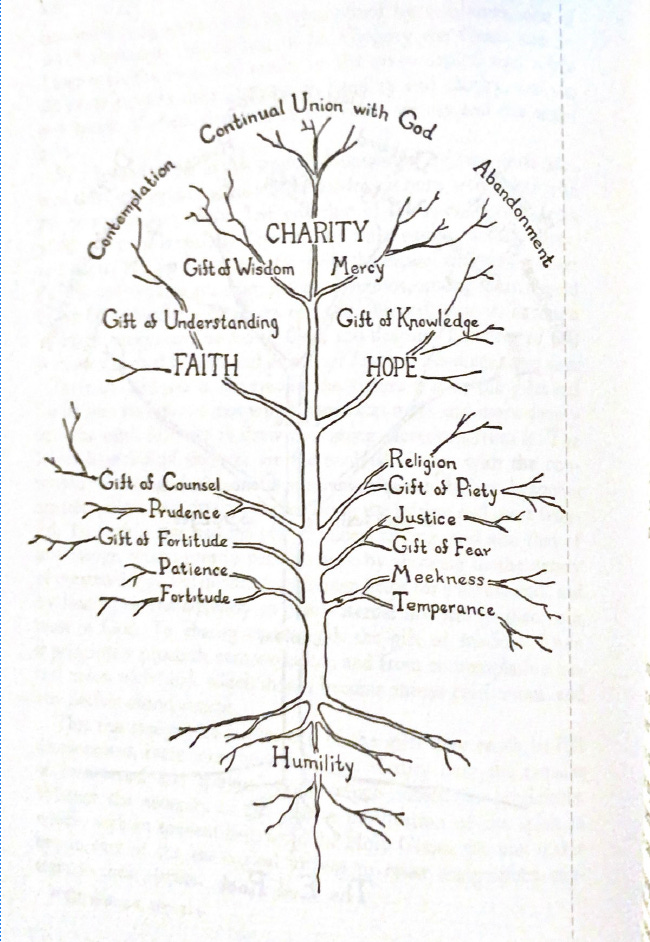On Humility in the Interior Life
“Take up my yoke upon you, and learn of me, because I am meek and humble of heart; and you shall find rest for your souls.” Matthew 11:29 DR
The Interior Life
Before considering the virtue of humility as the foundation of the interior life, we need to look at just what the interior life is as understood in the works of the great spiritual writers. I will endeavor to summarize the interior life to the best of my ability as found in the great spiritual writers such as Dionysius, St. Thomas Aquinas, St. Teresa of Avila, and St. John of the Cross as they are synthesized and explained in Fr. Reginald Garrigou-Lagrange.1
By interior life, we mean the spiritual life of the Christian that is begun through the grace of baptism and is ordered toward the perfect unity with God in the beatific vision. It is called interior because it is found within the soul in relationship to Christ. Imagine that your soul is a house, and you are about to sit down for supper and there is a knock at the door. You rise and open the door and the Our Blessed Lord is standing there desiring to enter your house and dine with you. This knock happens at the door of each soul and the journey that the soul goes on towards unity with God is the inviting of the Lord in to dine with it. This journey is characterized by an ever-flourishing relationship between the soul and Christ where the soul becomes less and less other and more and more assimilated into Christ.
Traditionally, following St. John of the Cross and St. Teresa of Avila, the interior life is summed up in three stages, sometimes referred to as ways, or as Garrigou calls them, the three ages of the interior life. He uses the term age, inspired by John of the Cross, since it corresponds to the growth of a human through the ages of life.2 These ages are:
The Purgative Way (The stage of Beginners or Childhood)
The Illuminative Way (The stage of the Proficient or Youth)
The Unitive Way (The stage of the Perfect or Manhood)



